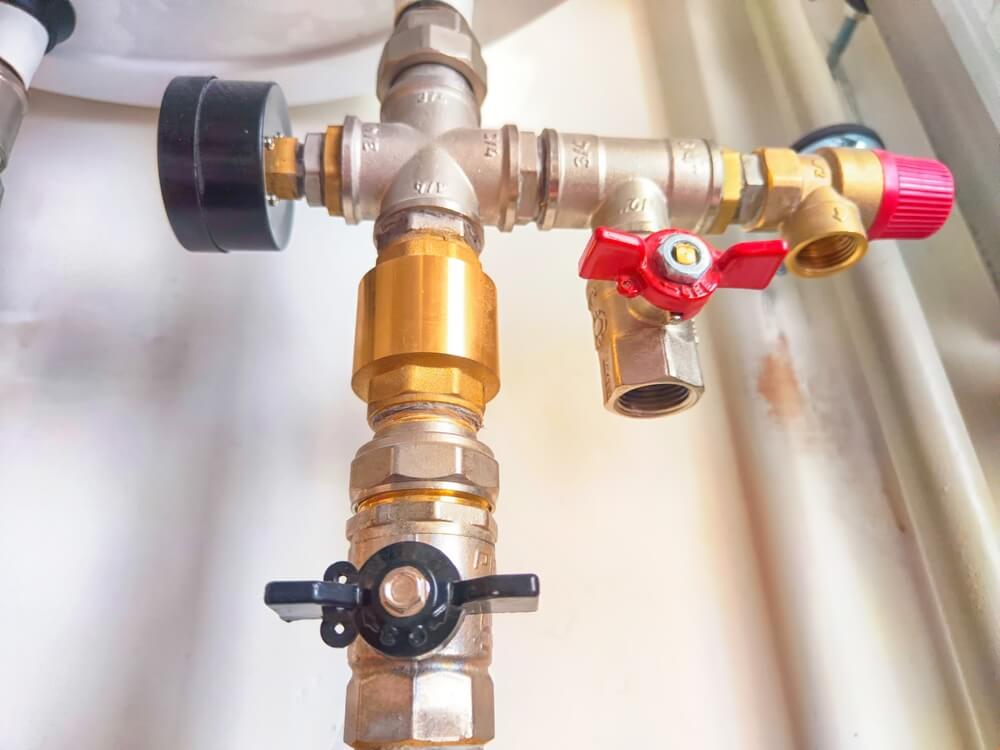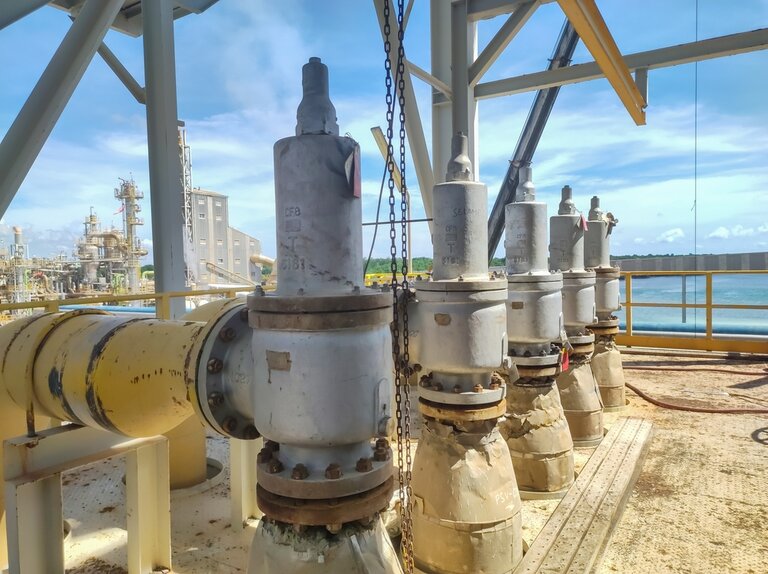Industrial valves are essential components that play a crucial role in controlling the flow of liquids, gases, and other substances across a wide range of industries. From oil and gas to water treatment, chemical processing, and power generation, these versatile devices are the unsung heroes behind the smooth operation of countless mission-critical systems. Let’s dive into the diverse world of industrial valves, exploring their different types, and applications.
Understanding the Fundamental Valve Types
Like pan conveyors and industrial generators, each type of valve is designed to excel in particular applications and environments. Let’s explore some of the most common and widely-used valve categories:
Gate Valves: The Heavy-Duty Flow Controllers
Gate valves are the sturdy workhorses of the valve world, known for their robust construction and ability to provide full flow or complete shut-off. Commonly found in water and gas distribution systems, these valves are renowned for their durability and reliability, making them an indispensable choice for applications where uncompromising flow control is paramount.
Globe Valves: Precision Flow Regulation
Globe valves are versatile flow control devices that regulate the passage of fluids by raising or lowering a plug against the flow path. Their precision control capabilities make them a popular choice in HVAC systems, steam turbines, and other applications where accurate flow management is essential.
Ball Valves: Efficient Shut-Off and Quick Action
Ball valves utilize a rotating ball with a hole to govern the flow of substances. Their ability to provide quick, quarter-turn shut-off and their widespread use in industries like oil and gas, pharmaceuticals, and food processing make them a versatile and highly sought-after valve type.
Butterfly Valves: Lightweight and Effective
Butterfly valves are simple yet highly effective flow control devices. They employ a rotatable disc to regulate the passage of fluids, making them a popular choice in water and wastewater systems due to their lightweight construction and ease of operation.
Check Valves: One-Way Flow Controllers
Check valves are unidirectional flow control devices that allow the passage of fluids in one direction while preventing reverse flow. These valves are commonly found in applications such as plumbing, pumps, and HVAC systems, where the prevention of backflow is crucial.
Plug Valves: Versatile On/Off Control
Plug valves feature a cylindrical or tapered plug that can be rotated to control the flow of substances. Their ability to handle frequent on/off operations makes them a preferred choice in various industrial settings where reliable shut-off functionality is required.
Needle Valves: Precise Flow Regulation
Needle valves are distinguished by their slender, tapered needle-like disc, which allows for precise control of fluid flow. These valves are often used in applications where meticulous flow management is essential, such as in instrumentation and laboratory equipment.
Diaphragm Valves: Corrosion and Abrasion Resistance
Diaphragm valves employ a flexible diaphragm to regulate the flow of fluids, particularly those that are corrosive or abrasive in nature. Their unique design makes them well-suited for use in chemical processing plants and other industries handling aggressive substances.
Diverse Applications of Industrial Valves
 Like industrial burners, the versatility of industrial valves is truly remarkable, as they find applications across a wide range of industries and sectors. Let’s explore some of the key areas where these essential components play a vital role:
Like industrial burners, the versatility of industrial valves is truly remarkable, as they find applications across a wide range of industries and sectors. Let’s explore some of the key areas where these essential components play a vital role:
Oil and Gas
In the oil and gas industry, valves are indispensable for regulating the flow of crude oil, natural gas, and various other fluids through pipelines, refineries, and drilling operations. Ball valves, gate valves, and check valves are among the most commonly used valve types in this sector.
Water Treatment
Water treatment facilities rely heavily on valves to control the flow of both clean and wastewater. Butterfly valves and globe valves are particularly well-suited for these applications, ensuring the efficient management of water resources.
Chemical Processing
In chemical plants, valves play a crucial role in controlling the flow of corrosive and hazardous substances. Ball valves and diaphragm valves, known for their resistance to aggressive chemicals, are widely used in these demanding environments.
HVAC Systems
Valves are integral components in heating, ventilation, and air conditioning (HVAC) systems, where they regulate the flow of hot or cold air to maintain optimal temperature and air quality. Globe valves and ball valves are commonly employed for these purposes.
Power Generation
Power plants utilize valves in their steam and water circuits to manage pressure and flow, ensuring the smooth and efficient operation of turbines and other critical equipment. Globe valves and gate valves are often the go-to choices for these applications.
Manufacturing
In manufacturing processes, various types of industrial valves are employed to control the flow of raw materials, intermediate products, and gases, enabling seamless production line operations.
Food and Beverage
The food and beverage industry relies on valves to regulate the flow of ingredients during the production process, helping to maintain consistency and quality in the final products. Pharmaceuticals Valves play a crucial role in pharmaceutical manufacturing, controlling the flow of ingredients and ensuring the integrity and purity of the final drug products.
The Critical Role of Industrial Valves in Modern Industry
Industrial valves are the unsung heroes that keep the wheels of countless industries turning. From regulating the flow of crude oil and natural gas to managing the treatment of water and the production of pharmaceuticals, these versatile components, play a vital role in the smooth and safe operation of mission-critical systems. For more information on industrial valves and their applications, contact Lindberg Process Equipment today.





